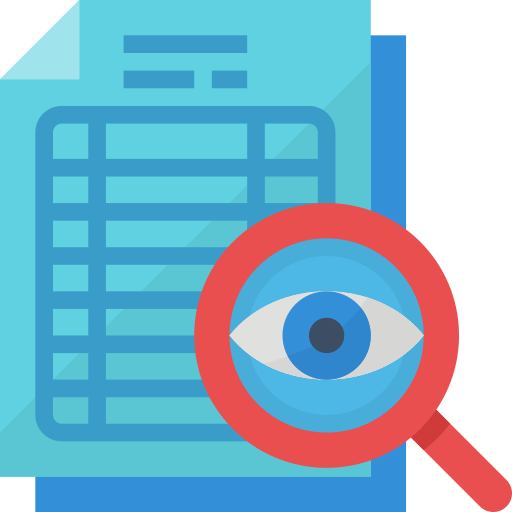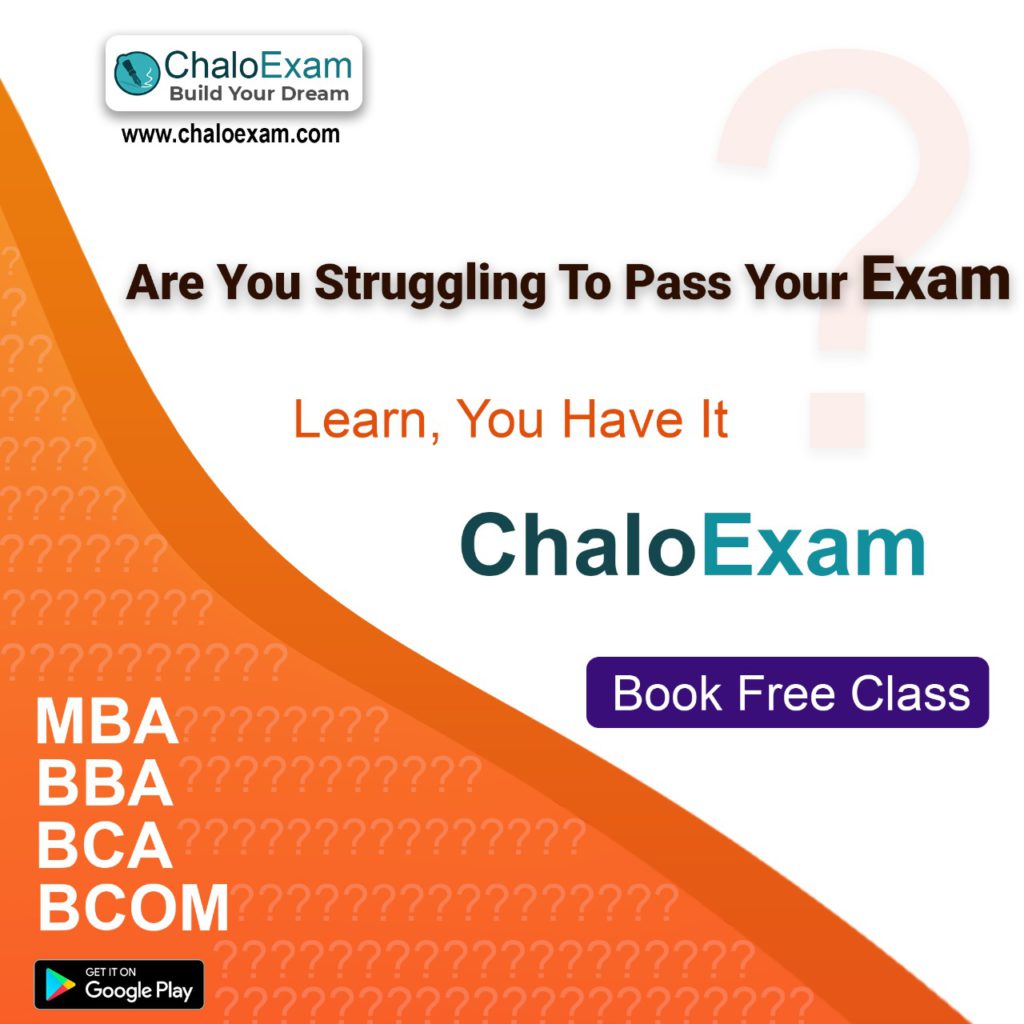Bangalore North University 6th Sem BCOM Study Materials (New Syllabus)
Download free BCOM 6th sem module wise notes, latest solved question papers, previous 5 years question paper till 2021, model question papers, easy notes, exam-oriented notes are available on this website chaloexam.com of Bangalore University
Syllabus
6.1 BUSINESS REGULATIONS
OBJECTIVE:
To introduce the students to various Business Regulations and familiarize them with common issues of relevance.
UNIT 1: INTRODUCTION TO BUSINESS LAWS 06 Hrs
Introduction, Nature of Law, Meaning and Definition of Business Laws, Scope and Sources of Business Laws.
UNIT 2: CONTRACT LAWS 18Hrs
Indian Contract Act, 1872: Definition of Contract, essentials of a valid contract, classification of contracts, remedies for breach of contract.
Indian Sale of Goods Act, 1930: Definition of contract of sale, essentials of contract of sale, conditions and warrantees, rights and duties of buyer, rights of an unpaid seller.
UNIT 3: COMPETITION AND CONSUMER LAWS: 14 Hrs
The Competition Act, 2002: Objectives of Competition Act, Features of Competition Act, CAT, offences and penalties under the Act, Competition Commission of India.
Consumer Protection Act, 1986: Definition of the terms consumer, consumer dispute, defect, deficiency, unfair trade practices and services. Rights of the consumer under the Act, Consumer Redressal Agencies – District Forum, State Commission, National Commission.
UNIT 4: ECONOMIC LAWS 12 Hrs
Indian Patent Laws and WTO Patent Rules: Meaning of IPR, invention and non-invention, procedure to get patent, restoration and surrender of lapsed patent, infringement of patent, FEMA 1999: Objects of FEMA, salient features of FEMA, definition of important terms: authorized person, currency, foreign currency, foreign exchange, foreign security, offences and penalties.
UNIT 5: ENVIRONMENTAL LAW 06 Hrs
Environment Protection Act, 1986: Objects of the Act, definitions of important terms: environment, environment pollutant, environment pollution, hazardous substance and occupier, types of pollution, rules and powers of central government to protect environment in India.
SKILL DEVELOPMENT
∙ Prepare a chart showing sources of business law and Indian Constitution Articles having economic significance.
∙ Draft an agreement on behalf of an MNC to purchase raw materials indicating therein terms and conditions and all the essentials of a valid contract.
∙ Draft an application to the Chief Information Officer of any government office seeking information about government spending.
∙ Draft digital signature certificate.
∙ Draft a complaint to District Consumer Forum on the deficiency of service in a reputed corporate hospital for medical negligence.
∙ Collect leading cyber-crimes cases and form groups in the class room and conduct group discussion. ∙ Draft a constructive and innovative suggestions note on global warming reduction.
BOOKS FOR REFERENCE:
- K. Aswathappa, Business Laws, HPH,
- Bulchandni, Business Laws, HPH.
- K. Venkataramana, Business Regulations, SHBP.
- Kamakshi P & Srikumari P – Business Regulations, VBH.
- N.D. Kapoor, Business Laws, Sultan chand publications.
- S.S Gulshan – Business Law
- S.C. Sharma: Business Law I.K. International Publishers
- Tulsion Business Law, TMH.
39
6.2 PRINCIPLES AND PRACTICE OF AUDITING
OBJECTIVE:
This subject aims at imparting knowledge about the principles and methods of auditing and their applications.
Unit 1: INTRODUCTION TO AUDITING 12 Hrs Introduction – Meaning - Definition – Objectives – Differences between Accountancy and Auditing – Types of Audit - Advantages of Auditing – Preparation before commencement of new Audit – Audit Notebook – Audit Working Papers – Audit Program, Recent Trends in Auditing: Nature & Significance of Tax Audit – Cost Audit - Management Audit.
Unit 2: INTERNAL CONTROL 10 Hrs Internal Control: Meaning and objectives. Internal Check: Meaning, objectives and fundamental principles. Internal Check as regards: Wage Payments, Cash Sales, Cash Purchases. Internal Audit: Meaning - Advantages and Disadvantages of Internal Audit – Differences between Internal Check and Internal Audit.
Unit 3: VOUCHING 12 Hrs Meaning - Definition – Importance – Routine Checking and Vouching – Voucher -Types of Vouchers – Vouching of Receipts: Cash Sales, Receipts from debtors, Proceeds of the sale of Investments. Vouching of Payments: Cash Purchases, Payment to Creditors, Deferred Revenue Expenditure.
Unit 4: VERIFICATION AND VALUATION OF ASSETS AND LIABILITIES 12 Hrs Meaning and Objectives of verification and valuation– Position of an Auditor as regards the Valuation of Assets – Verification and Valuation of different Items: Assets: Land & Building, Plant & Machinery, Goodwill – Investments - Stock in Trade. Liabilities: Bills Payable - Sundry Creditors – Contingent Liabilities.
Unit 5: AUDIT OF LIMITED COMPANIES AND OTHERS 10 Hrs Company Auditor – Appointment – Qualification - Powers - Duties and Liabilities – Professional Ethics of an Auditor. Audit of Educational Institutions – Audit of Insurance Companies- Audit of Co operative societies.
SKILL DEVELOPMENT:
∙ Collect the information about types of audit conducted in any one Organization ∙ Visit an audit firm, write about the procedure followed by them in Auditing the books of accounts of a firm.
∙ Draft an investigation report on behalf of a Public Limited Company
∙ Record the verification procedure with respect to any one fixed asset.
∙ Draft an audit program.
BOOKS FOR REFERENCE:
- P N Reddy & Appannaiah, Auditing, HPH
- TR Sharma, Auditing, Sahitya Bhavan
- BN Tandon, Practical Auditing, Sultan Chand
- Dr. Nanje Gowda, Principles of Auditing, VBH
- Dr. Alice Mani: Principles & Practices of Auditing, SBH.
- K. Venkataramana, Principles And Practice Of Auditing, SHBP.
- MS Ramaswamy, Principles and Practice of Auditing.
- Dinakar Pagare, Practice of Auditing, Sultan Chand
- Kamal Gupta, Practical Auditing, TMH
- R.G Sexena - Principles and Practice of Auditing, HPH
40
6.3 INCOME TAX - II
OBJECTIVE
The Objective of this subject is to make the students to understand the computation of Taxable Income and Tax Liability of individuals.
Unit 1: PROFITS AND GAINS FROM BUSINESS OR PROFESSION 16 Hrs Meaning and Definition of Business, Profession – Vocation - Expenses Expressly Allowed – Allowable Losses – Expenses Expressly Disallowed – Expenses Allowed on Payment Basis - Problems on Business relating to Sole Trader and Problems on Profession relating to Chartered Accountant, Advocate and Medical Practitioner.
Unit 2: CAPITAL GAINS 16 Hrs Basis of Charge – Capital Assets – Transfer of Capital Assets – Computation of Capital Gains – Exemptions U/S 54, 54B, 54D, 54EC, 54F– Problems on Capital Gains.
Unit 3: INCOME FROM OTHER SOURCES 10 Hrs Incomes – Taxable under the head Other Sources – Securities – Kinds of Securities – Rules for Grossing Up – Ex-Interest Securities – Cum-Interest Securities – Bond Washing Transactions – Problems on Income from Other Sources.
Unit 4: DEDUCTIONS FROM GROSS TOTAL INCOME 06 Hrs Deductions u/s: 80 C, 80 CCC, 80 CCD, 80 D, 80 G, 80 GG, 80 GGA, and 80 U. (80 G & 80 GG together should not be given in one problem)
Unit 5: SET-OFF & CARRY FORWARD OF LOSSES AND ASSESSMENT OF INDIVIDUALS 08Hrs Meaning –Provision for Set-off & Carry forward of losses (Theory only).
Computation of Total Income and Tax Liability of an Individual Assessee (Problems– in case of income from salary & house property- computed income may be given).
SKILL DEVELOPMENT
∙ Table of rates of Tax deducted at source.
∙ Filing of IT returns of individuals.
∙ List of Enclosures for IT returns.
BOOKS FOR REFERENCE
- Dr. Vinod K. Singhania: Direct Taxes – Law and Practice, Taxmann publication. 2. B.B. Lal: Direct Taxes, Konark Publisher (P) ltd.
- Dinakar Pagare: Law and Practice of Income Tax, Sultan Chand and sons. 4. Gaur & Narang: Income Tax, Kalyani
- B.B. Lal: Income Tax, Central Sales Tax Law & Practice, Konark Publisher (P) Ltd. 6. Singhania: Income Tax
- Dr. H.C Mehrothra : Income Tax, Sahitya Bhavan
- 7 Lecturer Income Tax – VBH
41
6.4 MANAGEMENT ACCOUNTING
OBJECTIVE
The objective of this subject is to enable the students to understand the analysis and interpretation of financial statements with a view to prepare management reports for decision-making.
UNIT 1: INTRODUCTION TO MANAGEMENT ACCOUNTING 12 Hrs
Management Accounting: Meaning – Definition – Objectives – Nature and Scope– Role of Management Accountant – Relationship between Financial Accounting and Management Accounting, Relationship between Cost Accounting and Management Accounting.
Analysis of Financial Statements: Types of Analysis – Methods of Financial Analysis – Problems on Comparative Statement analysis – Common Size Statement analysis and Trend Analysis.
UNIT2: RATIO ANALYSIS 14 Hrs
Meaning and Definition of Ratio, Classification of Ratios, Uses & Limitations – Meaning and types of Ratio Analysis – Calculation of Liquidity ratios, Profitability ratios and Solvency ratios.
UNIT 3: FUND FLOW ANALYSIS 10 Hrs
Meaning and Concept of Fund – Meaning and Definition of Fund Flow Statement – Uses and Limitations of Fund Flow Statement – Differences between Cash Flow Statement and Fund Flow Statement - Procedure for preparation of Fund Flow Statement – Statement of changes in Working Capital – Statement of Funds from Operations – Statement of Sources and Applications of Funds –
Problems.
UNIT 4: CASH FLOW ANALYSIS 14 Hrs
Meaning and Definition of Cash Flow Statement – Concept of Cash and Cash Equivalents - Uses of Cash Flow Statement – Limitations of Cash Flow Statement – Provisions of Ind AS-7 (old AS 3) – Procedure for preparation of Cash Flow Statement – Cash Flow from Operating Activities – Cash Flow from Investing Activities and Cash Flow from Financing Activities – Preparation of Cash Flow Statement according to Ind AS-7 (old AS 3) (Indirect Method Only).
UNIT 5: MANAGEMENT REPORTING 06 Hrs
Meaning of Management Reporting – Requisites of a Good Reporting System – Principles of Good Reporting System – Kinds of Reports – Drafting of Reports under different Situations.
SKILL DEVELOPMENT
∙ Collection of financial statements of any one organization for two years and preparing comparative statements
∙ Collection of financial statements of any two organization for two years and prepare a common Size Statements
∙ Collect statements of an Organization and Calculate Important Accounting Ratio’s ∙ Draft a report on any crisis in an organization.
BOOKS FOR REFERENCE
- Dr. S.N. Maheswari , Management Accounting
- Sexana, Management Accounting
- SudhindraBhat- Management Accounting
- Dr. S.N. Goyal and Manmohan, Management Accounting
- B.S. Raman, Management Accounting
- Sharma and Gupta, Management Accounting
- M Muniraju& K Ramachandra, Management Accounting
- PN Reddy &Appanaiah, Essentials of Management Accounting.
- J.Made Gowda - Management Accounting
Business Regulations

Business Regulations
Principles and Practice of Auditing

Principles and Practice of Auditing
Management Accounting

Management Accounting
ACCOUNTING & TAXATION GROUP (Elective)

ACCOUNTING & TAXATION GROUP (Elective)
FINANCE GROUP (Elective)

FINANCE GROUP (Elective)
INFORMATION & TECHNOLOGY GROUP (Elective)

INFORMATION & TECHNOLOGY GROUP (Elective)
BANKING & INSURANCE GROUP (Elective)

BANKING & INSURANCE GROUP (Elective)





































